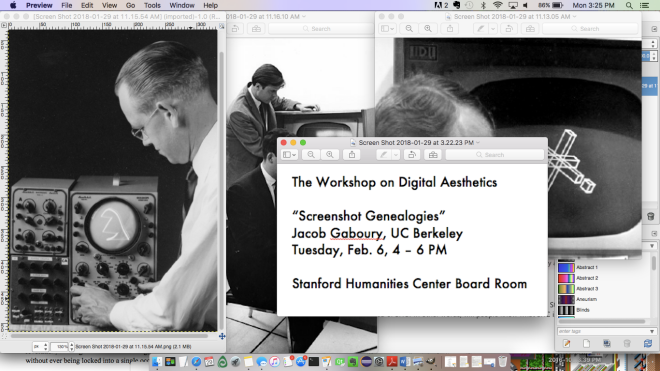
We’re delighted to welcome our next speaker for the Digital Aesthetics Workshop: Scott Richmond will present a hands-on demo, titled, “Computing, Intimately: On Computational Transitional Objects” on Friday, March 14, from 11:30am-1pm PT. We request that participants also take a look at the paper he has generously provided us with in advance (please email Grace Han for a copy: ghahahan at stanford dot edu). The event will take place in the Board Room at the Stanford Humanities Center and lunch will be served.
Zoom link for those unable to join in-person: tinyurl.com/mrzjv77d
Abstract:
This hands-on workshop will engage computing historically, theoretically, and aesthetically. Drawing on the work of MIT computer scientist Seymour Papert in the 1970s, whose team made the Logo pedagogical programming environment, we will attend to the psychic and aesthetic dimensions of the computational transitional object as it emerged around 1970. Papert theorized the computational transitional object as our surrogate in the microworld of the computer. Participants will be asked to read a pre-circulated paper about Papert. They should bring a laptop to do hands-on coding in Ludus, a translation of Logo. No programming experience of any kind is required, and those who already know how to code should come with beginners’ mind.
Bio:
Scott C. Richmond is Associate Professor of Cinema and Digital Media in the Cinema Studies Institute at the University of Toronto, where they also direct the Centre for Culture and Technology. Their work lies at the intersection of film and media theory, queer and affect theory, avant-garde and experimental media aesthetics, and the history of computing. They are author of two books, Cinema’s Bodily Illusions: Flying, Floating, and Hallucinating (Minnesota, 2016) and Find Each Other: Networks, Affects, and Other Queer Encounters (Duke, under contract).
This event is generously co-sponsored by the Stanford Media Studies Colloquium.



